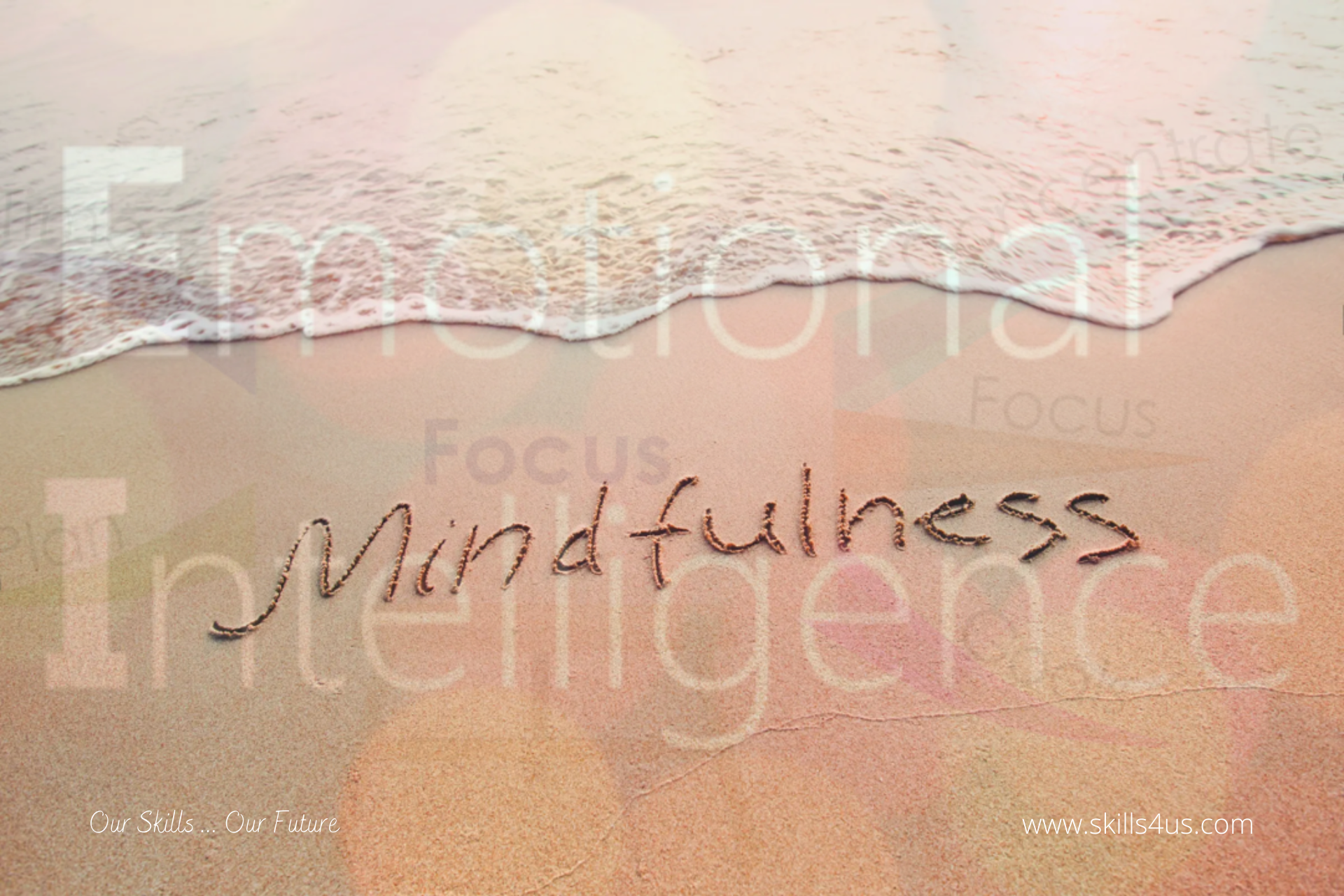Similar to how computers have software and operating systems, we humans have our software and operating systems, albeit slightly different—knowing that our programs comprise our thoughts, emotions, and feelings. In contrast, our operating systems comprise our relationships with ourselves and others. Just as computers need to upgrade their operating systems occasionally, our operating systems also need to be developed and upgraded. Thus, the effective practice of focus & mindfulness is one way to upgrade our operating systems. Helping us develop and enhance EI skills through the ability to train the mind to engage in more patient, alert, and productive ways.
Mental Focus
Mental focus is a tricky process. It means directing the mind and attention to follow what is said or going on around us for a specific time without distraction. Which differs from one person to another, and from one situation to another. This is because many factors lead to dispersion surrounding us, whether they are environmental factors or those around us. Also, mental focus is the highest level of attention, as we can ignore all the things that would distract our thoughts. As a result, mental focus is nothing but directing the mind to one subject to look at it from all sides, confining thinking to it. And analyzing it entirely until a solution is reached.
Mindfulness
Mindfulness is maintaining awareness of our thoughts, feelings, physical sensations, and surrounding environment. So is the awareness that arises through focus and attention, intentionally, in the present moment, without judgment. Mindfulness can help us avoid destructive or automatic habits and responses by noticing our thoughts, emotions, and experiences in the present moment without judging or reacting to them. Furthermore, mindfulness gives us more freedom to choose our emotional responses to a situation rather than reacting reflexively. Because it enhances emotional regulation, it helps reduce feelings of impulsiveness by widening the gap between what happens to us and what we do with it.
The Relationship Between EI, Focus, And Mindfulness
Success in work and fulfillment can be enhanced when we develop EI skills. And use them to guide our words and actions. In addition, EI is a combination of specific traits. But it is only effective when business leaders nurture those traits for organizational and personal success. Moreover, the effective practice of focus & mindfulness helps leaders develop and enhance EI skills through the ability to train the mind to engage in more patient, alert, and productive ways. Thus, Focus & mindfulness are learned, which leaders need to take time to earn and can only maintain through committed practice. For many leaders, Focus & mindfulness may be a phase or reactive procedure for a particular situation. But for a strategic leader, it is a way of life both professionally and personally.
Methods Of Focus & Mindfulness
As a manager, you often suffer from stress and burnout. As your energy is consumed, leading to a decline in your productivity and ability to focus, draining your personal health and sense of happiness. There are ways to help you improve and make your Focus & mindfulness more effective:
- Choose a quiet place, Find a time when you can’t be interrupted and designate it as your mindfulness time.
- Balance is a shifting imaginary concept. So you should focus on the regularity that enables prioritization at work, in society, and with the family.
- Your routine is very private, so resist the temptation to compare your best solutions to others.
- You may stand out in vitality, communication, or productive energy. Therefore, reward yourself for your achievements and allocate time for them to rest at the height of your busyness.
- The only time you can live in is the present, so that should be what you focus on. Stop thinking about the past or the future, and focus on where you are now.
- You may need to identify the alternatives in a particular chart. And you will have time to effect the overall change. So, start with easy tasks to implement and make an immediate difference.
- Distinguished practices are measured by their results, and generalization is a form of concealing shortcomings, so stay away from it.
- Slow and steady steps are the best-paced. Recall the Japanese industrialization strategy based on continuous development at a gradual pace. That brought about an industrial revolution in the world.
- When you notice your mind wandering, refocus and don’t judge yourself. Because of these thoughts or the fact that your mind wanders, but just come back to the present moment.
- You may master ten skills to carry out your daily tasks. But always remember to focus on two of them, as this leads to success while maintaining motivation.
Effective Practice Of Focus & mindfulness In Areas Of EI
Practicing focus & mindfulness in your life and career will help you develop in all areas of EI, as it leads to:
- Developing several leadership qualities, such as monitoring our thoughts and feelings, is crucial in developing self-awareness. Which helps you communicate and work better with others.
- Making you more emotionally intelligent to communicate, as it contributes to increased curiosity about the world around you. Specifically, a greater interest in getting to know and talking to the people you meet.
- Increase empathy and make it powerful to help facilitate clear and open communication, helping you develop stronger bonds with your employees.
- Developing your EI skills help you understand yourself better, making it easier for you to understand others as well.
Focus & mindfulness are states of active attention and openness to the present and skills that need regular practice to be most effective. In addition, they are effective in upgrading our operating systems because they increase our EI. Thus, there is a positive relationship between focus, mindfulness, and EI. As a future manager, you must work hard to improve your Focus & mindfulness. Which will inevitably develop your EI skills, helping you excel in the future!
